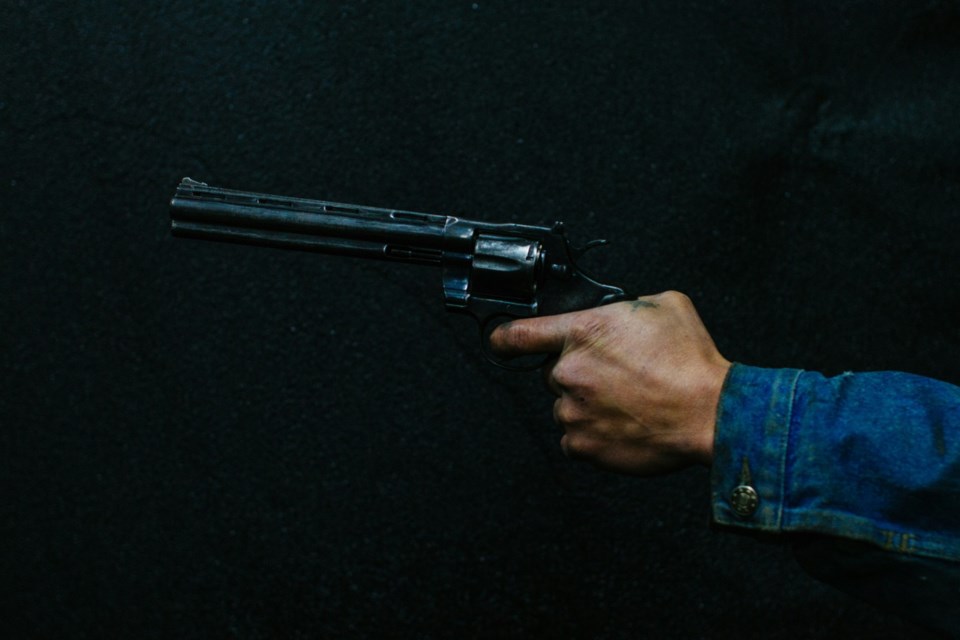Are we at war? This question haunts me every time I hear about another shooting or violent incident, whether it involves a student, a police officer, a teacher, or an innocent bystander.
As human beings, we pride ourselves on being civil, yet both personal and collective forces seem to drive us deeper into violence. We no longer live in a time when the guillotine or electric chair were seen as acceptable punishments, but the institutions meant to uphold civility seem powerless in the face of increasing violence.
Schools, once safe havens for learning, are now turning into battlegrounds where students need protection from the world they are supposed to be preparing for.
The problem isn’t just the weapons used in these violent acts – assault rifles, handguns, knives, drones – but the uncivilized minds wielding them. We can imprison people and try to remove the tools of violence, but the deeper issue remains unsolved. Our society is failing to address the root causes of this growing violence. This raises important questions: What drives this anti-social, uncivil behaviour? What pushes people towards violence? Are our current strategies for prevention making any real difference?
Even in areas where civility should reign, we see a new rise in aggression. Once, political opponents could disagree and still maintain respect for each other. Now, it often feels as though hate itself is being cultivated, with rhetoric encouraging the demonization of one’s political opponents. The practice of healthy debate and democratic competition is deteriorating into a battlefield of hostility and contempt. What kind of example does this set for the next generation? If even our leaders and public figures can’t model civil discourse, how can we expect society to remain peaceful?
Some say punishment is the key to deterring crime, but the reality is more complex. Have hate laws truly reduced hate, or have they simply driven violence into darker, more hidden forms? The threat of punishment might suppress violent behaviour temporarily, but it doesn’t deal with the underlying forces that drive people to act out. Punitive measures alone won’t create a civil society; they only hide the symptoms of a much deeper issue.
In the past, the solution to uncivilized behaviour was often swift and brutal – an “eye for an eye” approach that aimed to eradicate violence through fear. Today, we’ve moved away from such methods, viewing them as too barbaric, instead turning to education and rehabilitation. Education is often promoted as the key to creating a more civil society, but even that falls short. Once, churches played a central role in instilling moral codes and civil behaviour, guiding individuals through faith. But times have changed, and those institutions no longer hold the same influence.
So, where does that leave us? Our schools, homes, and communities are buckling under the weight of unchecked violence, and yet we seem unsure of how to stop it. We can’t continue to tolerate uncivilized behaviour in a society that calls itself civil. But when do we finally say, “Enough is enough”? And what steps should we take to prevent further violence?
The answer isn’t simple. It requires a multi-faceted approach that includes better parenting, more effective education, proper use of medication, and improved policing. But it also calls for a deeper cultural shift that takes a hard look at the values we’ve been passing down to future generations. Have we, in our pursuit of progress and prosperity, overlooked the fundamental need for empathy, respect, and moral accountability?
At 82 years old, I find myself deeply concerned about the world we are leaving behind. The legacy of neo-liberalism, which champions individualism and economic success above all else, has left us with a fractured society. The values that once bound us together – community, co-operation, civility – seem to have been replaced by division, isolation, hostility, a displaced faith in technology. In fact, technologies in all forms are serving to exacerbate the violence.
We have become a society more focused on winning than on understanding each other, more preoccupied with punishment than prevention.
This is not to say that all hope is lost. But we cannot continue down this path without facing serious consequences. Something has to change, starting with acknowledging that our current systems are not working. We need new ideas, new strategies, and a renewed commitment to building a genuinely civil society – one where violence isn’t the default response to conflict and where empathy and respect are valued as much as success and power.
The time for reckoning is now. If we don’t act soon, we risk losing not just the battle against violence but the very essence of what it means to be civil. And that’s a war we cannot afford to lose.
Dr. Perry Kinkaide is an accomplished manager and visionary, a change agent with passion and perspective. Since retiring in 2001, Perry has remained active as an advisor and director for several diverse public and private organizations. He is the founder (2005) and past president of the Alberta Council of Technologies Society. His pre-retirement positions include Canadian Knowledge Management Practice Leader and Managing Partner for KPMG Consulting in Edmonton (1987-2001) and Assistant Deputy Minister, Director of Privatization and Funding Reform, Edmonton Regional Director and Regional Coordinator of Services for the Handicapped with the Alberta Government (1972-1986). He received his BA from Colgate University in 1964, MSc in 1967 and PhD from the University of Alberta in 1972 in Brain Research.
The commentaries offered on SaskToday.ca are intended to provide thought-provoking material for our readers. The opinions expressed are those of the authors. Contributors' articles or letters do not necessarily reflect the opinion of any SaskToday.ca staff.




